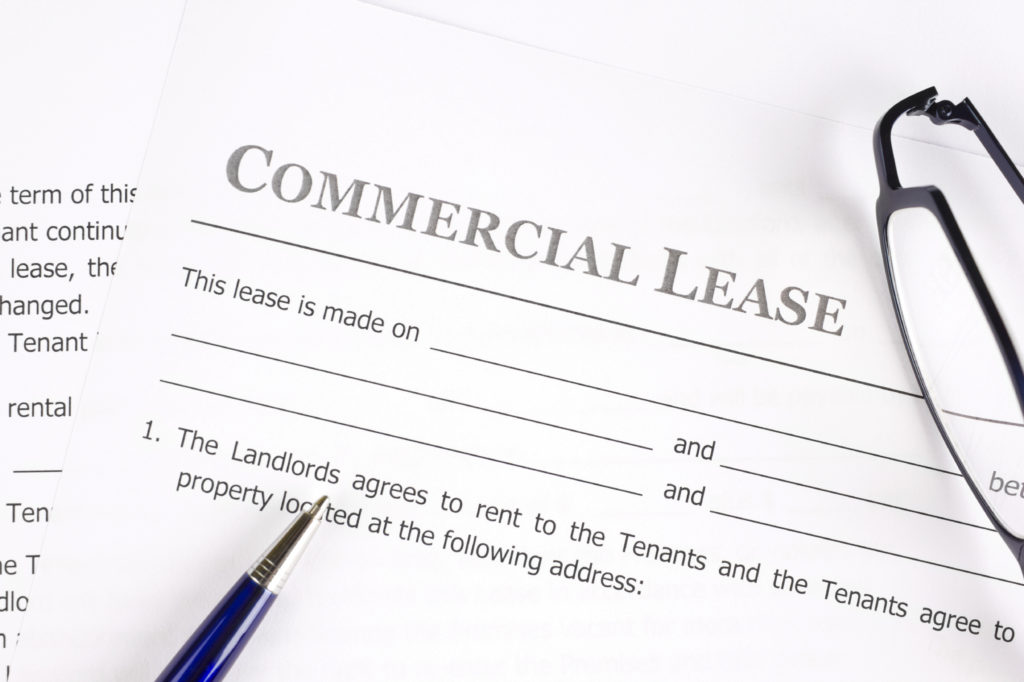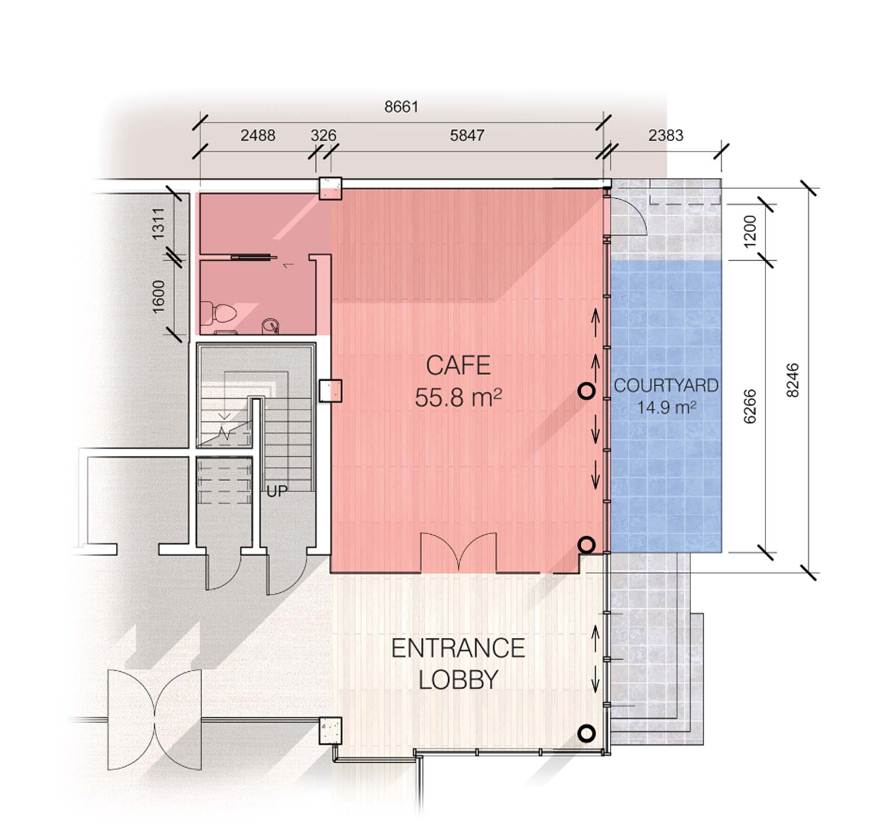Starting Off Smart: Richard Edwards on Leasing a Space for a Café
When starting up a café or restaurant, it’s all about the location. From the neighborhood to the interior of the space, the location can make or break an establishment. When you’ve found one you like, it may be tempting to just sign off on the lease without much thought. But as with any contract, it’s a good idea to know what the terms are and what you’re getting into – and how to get a better deal. I talked with Richard Edwards of Whites Legal, a firm that specializes in the hospitality industry, about what you need to keep in mind when leasing a premises and how to negotiate.
Richard is an avid supporter of the hospitality industry, and finds the industry to be in the midst of an exciting time. He sees many cafés these days working to do things better and more interesting with coffee, breakfast, you name it. In his home base of Melbourne, the café Lawyers, Guns, and Money offers a unique experience and atmosphere, with Vietnamese-style coffee and traditional offerings.
Richard has made his career out of challenging traditional thinking – just because it’s the way things have always been done doesn’t mean it’s the right way to do it. Rather, Richard asks, how about working out a way to do it better? Part of this is making his work more client-focused, prioritizing people and relationships. We mainly spoke about lease agreements, and Richard has a lot of advice to share with aspiring café owners.
Richard’s primary piece of advice is know what you’re in for before you sign. The lease agreement is the single most important document behind the hospitality business. Without a lease, you lose the location, and without a location, you’ve got no business. It’s also critically important to know the terms and value of the lease, so that if the time comes to sell or relocate, you won’t be surprised later on. Many people who go into the hospitality industry have no legal or even a business background, so consulting a lawyer is a good strategy if you’ve got questions about a potential lease agreement.

Standard lease agreements include the usual terms such as how much rent will be paid when, requests for insurance and other compliance agreements, and the tenant reserving the exclusive right to occupy the premises. But there are other provisions that hospitality folks might come across, such as damage, destruction, and relocation clauses. Richard advises to exercise caution and to avoid if possible, such clauses.
What’s wrong with these clauses? Well, they can be often misunderstood, usually against the tenant’s favor. In relocation clauses, more common with shopping center properties, the landlord may reserve the right to relocate your business. After you’ve spent all the time and money fitting out a particular space, if your landlord reserves the right to relocate you, it leaves you at a business disadvantage. Richard advises to, if possible, refuse to accept relocation clauses, because it can happen at a moment’s notice and can’t be properly accounted for.
Damage and destruction clauses relate to tenant rights and landlord obligations in the event of a fire, the façade falling down, or some other disaster. It can outline how long you have to wait before you can walk away from the lease, whether the landlord has any obligations to repair the damage, and compensation on the part of the tenant. Particularly since it can be so costly to repair and remodel, you need to make sure you get decent compensation.
Often, hospitality people fall in love with the location and then accept everything bolted into it – even if it’s not ideal. Richard says this is one of the biggest and most common mistake he sees with his clients. One client of his went ahead and bought a place he loved, but there were no grease traps built into the location. As a result, he’ll have to build that in and spend more money than perhaps originally intended. Don’t get too caught up in the dream and lose your business sense.
Tenants may easily fall in love with a place, but landlords rarely become so taken with a particular tenant. In the case of a business lease, it’s an investment. Landlords don’t care so much about the details of a business plan, but simply whether or not you can pay the rent. Landlords may look at things such as your previous business experience and your assets. If you don’t have many assets to back yourself up, it’s even more critical that you have a solid argument for your business plan – and perhaps a good lawyer.
It’s also important to understand the numbers. If you don’t have much of a business sense, you should definitely do some reading up on it, or find someone who has some. Leasing a premises, along with the other costs associated with it, can cost big money, and you need to have an idea of what the short and long-term costs that might be related to the lease.
A common clause in café lease agreements includes market rent reviews. This clause states which particular years in which the landlord will do a market review, and in between six and three months of the renewal period, a new rate may be decided upon. The details of such clauses can be confusing for the layman, who might gloss over it.
Know your rights as a business tenant. It puts you in a better position to negotiate. Consulting another party to evaluate the lease and soliciting a second opinion, as it were, will give you a better idea of what the actual market rate of the rent is and to avoid getting taken advantage of.
Another commonly misunderstood clause is renewals, and they can vary from area to area. Know the dates – normally between nine and three months for each renewal period – and put them in your calendar, so you know that you can be proactive when the time comes around for renewal. Normally, the landlord is the one who initiates the renewal process, but if not, it’s good, again, to know your laws and be prepared.
Guarantees are also often misunderstood among aspiring café owners. There’s normally an obligation for owners of a company to personally guarantee the payment of rent, and if not, then the landlord can boot you off. If you don’t have a lot of money behind your business, you may have to put a guarantee. Keep that in mind when negotiating.
If you’re working with a partner, or multiple stakeholders such as investors, directors, and shareholders, Richard advises to write up stakeholder agreements. These agreements outline everyone’s rights and obligations related to the business. For example, who has the final sale or fit-out on food on the front of house? Who has to provide guarantees? How will you raise more money? Much like a prenuptial agreement, you can define, in writing, how the business relationship is going to work. Thus, in the case of hard times, or the end of the business relationship, it is much less fraught and messy.
Richard says such stakeholder agreements are not common enough; in fact, all businesses could benefit from them. For Richard, relationships are tantamount to success in the hospitality industry. Even in the overall business sector, it’s about the people you meet and shake hands with. It’s important for café owners to foster good relationships with all partners in the business, especially in the event of a falling out. Even if you’ve already started, it’s never too late to draft one, as long as things are going well.
When negotiating a lease, it’s best to avoid gray areas as much as possible. For example, it’s inadvisable to occupy a premises before the date of the lease actually starts The much less complicated way to go about it is to at least obtain a tentative agreement beforehand, which basically outlines how much rent will be paid and so on. Then, once you’ve gone over the lease and all terms have been agreed upon, whether it’s the same day or a few weeks or months ahead of time, you can start realizing your dream for the space as soon as you get the keys.
Richard recommends several resources for people looking into entering the hospitality industry, not least of which his own Small Plates blog on the Whites Legal website. Richard writes in a casual, layman tone so non-legal experts can easily understand the concepts he comments on. Richard also recommends Open Table for a business point of view and Lucky Peach for different ideas and thought-provoking articles. Richard also recommends Serious Eats, especially their 3,000-word article on how to boil an egg – actually a useful guide for restaurateurs of all skill levels.
Leasing agreements are an important first step in starting up your café business, so knowing what you’re getting into is paramount. This only scratches the surface of Richard’s hospitality-focused legal expertise, however. His firm covers the gamut of the hospitality business, so there’s a lot more out there to learn. If you’d like to get in touch with Richard, you can find his details through whiteslegal.com.au. You can also subscribe to Small Plates and follow Whites Legal on Twitter for more tips related to the legal aspects of the hospitality industry.
Richard’s Key Takeaways
Don’t sign a lease agreement unless you understand all the clauses and terms of the agreement thoroughly. You don’t want to be caught off-guard later on.
Understand the numbers – consult a trusted associate or learn up on it yourself.
You may fall in love with a place, but keep in mind the costs and whether the place has everything you need.
Avoid relocation clauses in your lease agreements, if possible.
Keep in mind you may have to back up your lease agreement with guarantees. Evaluate your assets and how much risk you’re willing to take on. Guaranteeing your mother’s house, for example, may be too big of a risk to take for you.
With a renewal clause, make sure you understand the parameters and are well prepared when the time comes for a renewal.
Draw up a stakeholder agreement with business partners, investors, and other key players in your business. It will make things much less messy if and when the business relationship ends.
Consult an expert if you need help understanding all the terms of a lease agreement.
Richard recommends the journal Lucky Peach (http://luckypeach.com/) and the blog OpenTable (http://blog.opentable.com/) to read about food and the hospitality industry.
Check out the article on Serious Eats on boiling an egg, as well as the many other interesting and provocative articles you can find there: http://www.seriouseats.com/2014/05/the-secrets-to-peeling-hard-boiled-eggs.html
You can also check out Richard’s Small Plates blog on the Whites Legal website: http://whiteslegal.com.au/small-plates/
Podcast: Play in new window | Download
Subscribe: RSS












